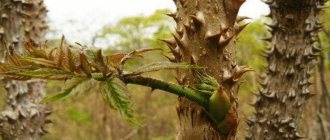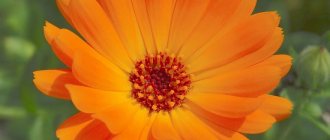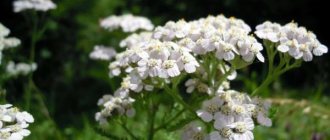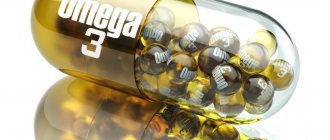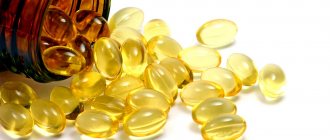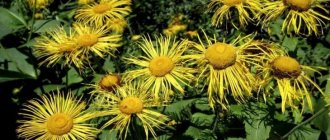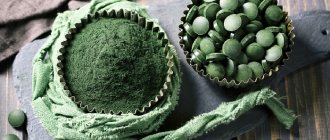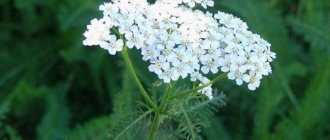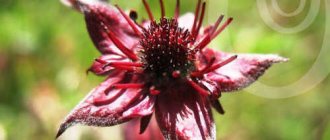Eleutherococcus is one of those rare plants about the medicinal properties of which official and alternative medicine agree. It contains many useful substances: glycosides, resins, essential oils, fats, and vitamins. In pharmacies you can buy an extract based on eleutherococcus, and in numerous eco-stores you can find dietary supplements, crushed roots for making tea drinks and other products.
, roots and rhizomes are mainly used , from which medicinal decoctions, tinctures, and teas are then prepared.
- Medicinal properties of eleutherococcus
- Collection of Eleutherococcus
- Storing Eleutherococcus
- Use of Eleutherococcus in cosmetics
- Eleutherococcus infusion
- Contraindications to the use of Eleutherococcus
finely grated roots of Eleutherococcus
Medicinal properties of eleutherococcus
One of the main beneficial and medicinal properties of Eleutherococcus is a general strengthening effect, which allows the use of plant-based products to restore the body after serious illnesses. Thus, the plant extract is recommended to be taken orally when undergoing a course of chemotherapy to improve well-being.
Eleutherococcus-based products have a tonic effect, providing a surge of energy, so they should not be taken before bed. But for chronic fatigue syndrome and rapid fatigue, they will be useful. However, in the long term - during a course of treatment - such drugs help normalize sleep.
fruits of eleutherococcus
Eleutherococcus allows you to increase the body's endurance, increase efficiency, and improve appetite. It has a beneficial effect on the nervous system and strengthens the immune system, helps with menstrual irregularities, as well as difficult menopause. Eleutherococcus-based products are used for colds and flu, bronchitis, diabetes, osteochondrosis, vegetative-vascular dystonia, and hypotension. For preventive purposes, Eleutherococcus is useful for preventing the development of atherosclerosis and infectious diseases.
! If a long course of treatment with Eleutherococcus extract is carried out, swelling may appear as a side effect, since fluid is retained in the body. If the dosage is exceeded, the drug can also cause diarrhea.
Eleutherococcus tincture - benefits and harms
The benefits of eleutherococcus for the human body are very high. Medicines from Eleutherococcus bring all body systems into a balanced state and have a tonic and strengthening effect.
The main beneficial properties of Eleutherococcus tincture:
- High adaptogenic properties - taking medications from Eleutherococcus helps increase the body's resistance to diseases caused by pathogenic viruses and bacteria, therefore the tincture is widely used as an immunomodulatory and general strengthening agent.
- Participation in metabolic processes - breakdown of fats, reduction of cholesterol and blood sugar levels. The drug is successfully used in the treatment of diabetes mellitus.
- Prevention of colds and seasonal viral infections.
- A restorative remedy for weakening after illnesses. In this case, taking eleutherococcus tincture helps to quickly establish the functioning of all body systems.
Liquid extract of Eleutherococcus
- Prevention of cancer, rapid recovery after radiation and chemotherapy. Taking the drug in these cases reduces the risk of cancer in cases of aggravating hereditary predisposition, and also reduces the percentage of possible relapses of cancer, and mitigates the effects of chemotherapy.
- An effective product when it is necessary to work in areas of high chemical and radioactive contamination.
- A tonic and stimulant, Eleutherococcus helps cope with negative psycho-emotional states and physical stress.
- Stimulation of the nervous system - relieves stress, fatigue, increases efficiency, attentiveness, improves mood.
- Cleansing the hematopoietic system, especially the walls of blood vessels, which helps preventively protect the body from atherosclerosis.
- Reduction of hormonal disorders during menopause.
- Treatment of dermatitis, seborrhea and other skin diseases.
- The use of Eleutherococcus tincture in gynecology – treatment of infertility, enhancement of sexual activity.
Eleutherococcus tincture
Harm from Eleutherococcus (in which cases is it prohibited to take medicinal products)
Eleutherococcus tincture, which has undoubted beneficial properties, is not recommended for use for medicinal purposes for certain diseases:
- Allergic reactions to substances contained in the plant.
- Hypertension, hypertensive crises - do not use drugs from Eleutherococcus due to their property of increasing blood pressure.
- Insomnia, emotional stress, anxiety - the use of a remedy is not recommended due to possible deterioration of the condition.
- Cardiac diseases (arrhythmia, tachycardia).
Important! Taking eleutherococcus tincture is strictly prohibited when breastfeeding and during all stages of pregnancy.
Collection of Eleutherococcus
Raw materials are harvested in the fall, most often in October, since during this period the plant has the highest concentration of nutrients.
You should choose mature bushes no younger than three years old, with shoots at least a meter high. It makes no sense to store rhizomes and roots of young shrubs, since they do not accumulate the required amount of valuable elements. The difficulty is that the plant is covered with sharp thorns that can damage the skin. To avoid problems, you should work in thick canvas gloves. In especially difficult cases, you can cut off the top part of the plant at the very beginning of work, leaving only the “stump”.
Eleutherococcus bush in summer in a shady garden
The selected plant needs to be dug up (the root system is shallow, so this is not difficult) and then turned over with its roots outward. The rhizomes should be cleared of traces of soil and, if necessary, washed, then cut into small pieces (about 8 cm in length) and left to dry. You can dry the raw materials either in a dryer, at a temperature of about 80 °C, or in a ventilated room, not exposed to direct sunlight - suspended from the ceiling.
! You can collect eleutherococcus in the same place no more than once every 7 years. The break allows the plants to recover and “absorb” enough useful elements.
Eleutherococcus extract liquid 50ml
Dosage form
extract for oral administration [liquid]
Compound
To prepare 1000 ml of the drug you need:
Active substance:
Eleutherococcus senticosus rhizomes and roots – 1000 g
Excipient:
Ethanol (ethyl alcohol) 40% – until 1 liter of extract is obtained.
Description
The liquid is dark brown in color, transparent in a thin layer, has a peculiar, specific smell. During storage, sediment may form.
Pharmacotherapeutic group
General tonic of plant origin.
ATX code:
[A13A]
Pharmacological properties
It has a stimulating effect on the central nervous system, a tonic and general strengthening effect on the body, increases the general nonspecific resistance of the body, helps improve appetite, and increase physical and mental performance.
Indications for use
Mental and physical fatigue, asthenic conditions of various etiologies, arterial hypotension (low blood pressure), during the recovery period after infectious diseases and the postoperative period.
Contraindications
Increased individual sensitivity to the components of the drug, arterial hypertension (high blood pressure), heart rhythm disturbances, increased excitability, epilepsy, convulsive conditions, insomnia, acute infectious diseases, chronic liver diseases, pregnancy, breastfeeding, children under 12 years of age.
Carefully
Alcoholism, traumatic brain injury, brain diseases.
Directions for use and doses
The drug is taken orally before meals in the first half of the day. Adults are prescribed 20-30 drops 2-3 times a day. For children over 12 years old - a dose of 1 drop per 1 year of life. The course of treatment is 25-30 days. If necessary, repeat courses are carried out with two-week breaks (or without them) after consultation with a doctor.
Shake before use.
Side effect
Allergic reactions, insomnia, hypoglycemia, headache, tachycardia are possible.
Overdose
When using the drug in doses higher than recommended, dose-dependent side effects may increase.
Treatment
: symptomatic.
Interaction with other drugs
Enhances the effect of stimulants of the central nervous system, is an antagonist of drugs that depress the central nervous system (including antipsychotics, barbiturates, anxiolytics, antiepileptic drugs). When used simultaneously with digoxin, the plasma concentration of the latter may increase; with hypoglycemic drugs (including insulin) and anticoagulants, the effect may be enhanced.
special instructions
The drug should not be taken in the afternoon to avoid sleep disturbances.
If hypoglycemia occurs, it is recommended to reduce the dose of the drug, take it after meals, or discontinue the drug.
The maximum single dose of the drug contains 0.43 g of absolute alcohol, the maximum daily dose of the drug is 1.4 g of absolute alcohol.
During the period of taking the drug, care should be taken when performing potentially hazardous activities that require special attention and quick reactions (driving vehicles, working with moving mechanisms).
Release form
Extract for oral administration [liquid].
25, 50 ml in orange glass bottles with a screw neck, sealed with polyethylene stoppers and screw-on plastic caps.
Each bottle with instructions for use is placed in a cardboard pack.
It is allowed to pack bottles with an equal number of instructions for use in a group package.
Storage conditions
In a place protected from light at a temperature not exceeding 15 ° C. Keep out of the reach of children.
Best before date
4 years. Do not use after the expiration date.
Conditions for dispensing from pharmacies
Over the counter.
Storing Eleutherococcus
Eleutherococcus should be stored in fabric (linen, cotton) bags. It is best not to put supplies in boxes, but to hang them so that they can be ventilated - for this you can use special racks or simply hang the bags on hooks driven into the shelves. The temperature should not rise above +20 °C. Under such conditions, the raw materials are stored for about 3 years without losing their beneficial properties.
Eleutherococcus roots
Spreading
Wild eleutherococcus bushes grow in Japan, China, Korea and Russia. In Russia, the plant is found only in the Far East: the Amur region, Primorye, Sakhalin.
Prefers to settle on mountain slopes, along rivers and in sufficiently illuminated forest areas. In cedar, fir and deciduous forests it forms an impenetrable undergrowth on the rich forest floor under the obligatory condition of high humidity. The plant loves partial shade. In a dense and dark forest, individual individuals survive. The closer to the south, the higher the plant climbs. Some species grow in the mountains at an altitude of 1000 m above sea level. Eleutherococcus can be found in your garden. It takes root well if the necessary conditions are created.
Preparations from Eleutherococcus were used to train athletes, divers and for the immunity of astronauts
Use of Eleutherococcus in cosmetics
Eleutherococcus extract is included in many skin care products. Thus, a tonic based on it is considered useful, used to cleanse skin prone to oiliness, relieve inflammation and rashes (including acne). To obtain a healing remedy, it is enough to dilute a few drops of Eleutherococcus extract in 1 tbsp. water. Wipe your face with this toner every day until you achieve a noticeable improvement.
Eleutherococcus tincture, which is rubbed into the roots before washing your hair, is useful for hair. It stimulates hair growth, prevents hair loss and helps fight dandruff.
Chemical composition
The chemical composition of the bush has been confirmed by scientific research. The roots contain:
- vitamins E, D, A, C, B1.
- eleutherosides - aromatic alcohol;
- essential oils;
- polysaccharides;
- flavonoids;
- tannins;
- sterols (b-sitosterol, daucosterol, triterpenoids);
- vegetable wax;
- coumarin;
- oleic acid.
The most valuable substances - eleutherosides (glycosides) are found only in Eleutherococcus senticosus. The substance increases mental and physical performance, improves metabolism in the body, increases vision and hearing, and blood pressure.
The effect of eleutherococcus on the human body is similar to the effect of ginseng root
Application
Eleutherococcus is included in the register of medicines in Russia. The effect of Eleutherococcus on the body has led to its use in the following areas:
- Official medicine - in the form of tablets, herbal mixture, Eleutherococcus extract, biostimulant for sports, dietary supplements.
- Cosmetology - for the treatment of hair and skin diseases.
- Veterinary medicine - for the treatment of animals.
- Gardening and landscape design - as decorative park bushes.
- In folk medicine, decoctions and teas are prepared from leaves, shoots and roots that fill a person with vigor.
An unexpected solution to what Eleutherococcus is used for turned out to be:
- energy drinks produced by the food industry;
- in bodybuilding to improve performance;
- if you need to quickly gain weight.
The area of using the beneficial capabilities of the plant is constantly increasing.
Special recommendations for the use of Eleutherococcus
It is not recommended to take Eleutherococcus preparations in the evening to avoid disrupting night sleep. Admission requires monitoring of blood pressure.
During the course of treatment, it is not recommended to drive vehicles or operate other dangerous mechanisms.
Eleutherococcus during pregnancy
Women should not take Eleutherococcus while pregnant and breastfeeding. In some cases, the attending physician may prescribe medicinal plant preparations if the expectant mother experiences severe hypotension, accompanied by fainting and headaches.
Eleutherococcus for children and adolescents
For children, Eleutherococcus can be prescribed in small dosages (1 drop of pharmaceutical preparation per year of the child’s life). The frequency of administration is 2 times a day. A unique plant helps young patients fight “seasonal” infections. It is not recommended to prescribe Eleutherococcus to children if the child has increased excitability of the nervous system (hyperactivity).
